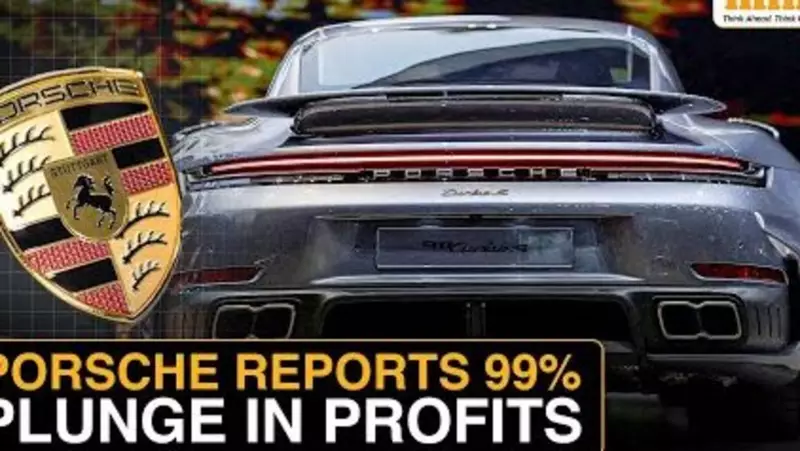
In a stunning reversal of fortune, German luxury automaker Porsche has reported a devastating €1.1 billion (approximately ₹9,200 crore) drop in operating profit, sending shockwaves through the global automotive industry.
The Perfect Storm: Multiple Factors Collide
Porsche's dramatic profit decline stems from a convergence of challenging market conditions that have hit the luxury segment particularly hard:
- Electric Vehicle Demand Slowdown: The much-anticipated EV revolution has hit unexpected speed bumps as consumer enthusiasm wanes amid charging infrastructure concerns and economic uncertainty
- China Tariff Impact: Hefty tariffs imposed by China on European luxury vehicles have severely impacted Porsche's most crucial market, where the brand typically generates nearly one-third of its global sales
- Increased Costs: Rising expenses across research development, manufacturing, and supply chain operations have squeezed profit margins
China Crisis: The Tariff Tsunami
The Chinese market, long considered Porsche's golden goose, has turned into a significant liability. Recent tariff impositions by Beijing have made Porsche vehicles substantially more expensive for Chinese consumers, causing a sharp decline in demand.
"This represents one of the most challenging periods for luxury automakers in recent memory," notes industry analysts. "When your most profitable market suddenly becomes your biggest problem, the financial impact is inevitable and severe."
EV Reality Check: The Demand Dilemma
Porsche had heavily invested in its electric vehicle lineup, including the popular Taycan model. However, the global slowdown in EV adoption has caught even premium manufacturers off guard.
- Consumer concerns about charging infrastructure reliability
- Higher upfront costs compared to traditional vehicles
- Economic uncertainty affecting luxury purchases
- Increased competition in the premium EV segment
Industry Implications: Warning Signs for Luxury Brands
Porsche's profit warning serves as a cautionary tale for the entire luxury automotive sector. The combination of geopolitical trade tensions and shifting consumer preferences toward electric vehicles has created unprecedented challenges.
Industry observers suggest that other premium brands may face similar headwinds as the market adjusts to new economic realities and evolving consumer behavior in the post-pandemic era.
The company now faces the dual challenge of navigating complex international trade relationships while simultaneously managing the transition to electric mobility in an increasingly uncertain market landscape.





